Last updated on December 26th, 2023 at 12:06 pm
The Engine Control Module (ECM), often referred to as the car’s brain, plays a critical role in modern vehicles. Its job is to manage and oversee the performance of the engine, ensuring optimal vehicle operation. One question that frequently arises is whether a malfunctioning ECM can drain the car’s battery.
Understanding the ECM
ECM, a type of electronic control unit (ECU), is a fundamental component of the engine management system in contemporary automobiles. It monitors and adjusts key functions such as fuel injection, spark ignition timing, and air intake, thereby maintaining optimal engine performance and efficiency. While ECMs are commonplace across all modern vehicles, the intricacies of their operation may vary significantly across different makes and models. Certain vehicles may employ a more complex ECM to handle a wider range of tasks, reflecting the advancement of on-board technology and the increasing demand for high-performance, fuel-efficient cars.
Battery Basics and Electrical Systems in Cars
A car battery, also known as an automotive battery, is a rechargeable energy storage device that provides electric energy to an automobile. Its primary role is to feed the starter, which starts the engine. Once the engine is running, power for the car’s electrical systems is supplied by the alternator.
Most car batteries are SLI batteries, which stands for starting, lighting, and ignition. They work by providing short bursts of energy to start the engine, power the lights, and supply the rest of the electrical systems with enough energy to allow them to function. These batteries are designed to release a high burst of energy and are then quickly recharged by the alternator.
The ECM and the Vehicle’s Electrical System
The ECM plays a crucial role in managing the vehicle’s electrical system. It controls the ignition system, fuel injection, and serves as the central hub for communications between various components. Beyond that, the ECM adjusts the amount of fuel, ignition timing, and other factors to optimize performance and efficiency.
The ECM requires a continuous flow of power, which the battery supplies even when the vehicle is off. This power allows the ECM to save various data, such as error codes or operational parameters that optimize the vehicle’s performance. If the battery’s charge drops too low, the ECM’s functions can be impacted, leading to performance issues. Hence, it’s crucial to maintain the health of both your vehicle’s battery and ECM for optimal performance and longevity.

Symptoms of a Bad ECM
The Engine Control Module (ECM) is a crucial component of your vehicle, and a malfunctioning ECM can lead to several noticeable symptoms that impact your car’s performance.
- Poor Performance or Fuel Efficiency: As the ECM optimizes the vehicle’s performance and fuel efficiency, a defective ECM could result in sub-optimal engine performance, increased fuel consumption, or both.
- Difficulty in Starting or Frequent Stalling: If your vehicle is hard to start or frequently stalls, it could be due to a failing ECM. This is because the ECM regulates the fuel delivery and ignition system, and any disruption in these functions can cause such issues.
- Check Engine Light: The check engine light may come on if the ECM detects any faults in the engine management system. However, a faulty ECM may trigger the check engine light without an actual problem in the engine.
- Battery Drain: One distinctive symptom of a malfunctioning ECM is battery drain. As the ECM receives continuous power from the battery to store critical data, a malfunctioning ECM could fail to cut off this power supply when the vehicle is off, leading to battery drain.
How a Bad ECM Can Drain the Battery
A malfunctioning Engine Control Module (ECM) can lead to battery drain in several ways. Primarily, the ECM might fail to enter ‘sleep mode’ when you turn off the vehicle. In normal operation, the ECM goes into this low-power state while the vehicle is off, drawing just enough power to save critical data like error codes and operational parameters. If the ECM fails to enter sleep mode due to a malfunction, it will continue to draw power at the same rate as if the vehicle was running, leading to excessive battery drain.
Electrical irregularities like short circuits within the ECM can also cause battery drain. If the internal circuitry of the ECM is damaged, it can create a direct path between the power and ground circuits. This ‘short’ allows current to flow unchecked from the battery, draining it rapidly.
Diagnosing ECM-related Battery Drain
If you suspect that your vehicle’s ECM might be the cause of your battery drain, it’s crucial to diagnose the issue properly. Here are the steps to follow and the tools you’ll need:
Tools You’ll Need: You’ll require a multimeter and a diagnostic scanner. The multimeter measures the amount of current being drawn from the battery, while the diagnostic scanner reads the error codes stored in the ECM.
Perform a Parasitic Draw Test with a Multimeter: Disconnect your vehicle’s negative battery cable and set your multimeter to measure current. Connect one multimeter lead to the negative battery post and the other to the negative battery cable. If the multimeter reading is above 50 milliamps, it indicates a parasitic drain.
Identifying the ECM as the Source: To determine if the ECM is the source of the drain, pull the ECM fuse and observe the multimeter reading. If the reading drops significantly, this suggests the ECM is the cause of the drain.
Check for Error Codes with a Diagnostic Scanner: Connect the diagnostic scanner to your vehicle’s OBD-II port and run the scan. Note down any error codes and consult the vehicle’s service manual or a trusted mechanic for interpretation.
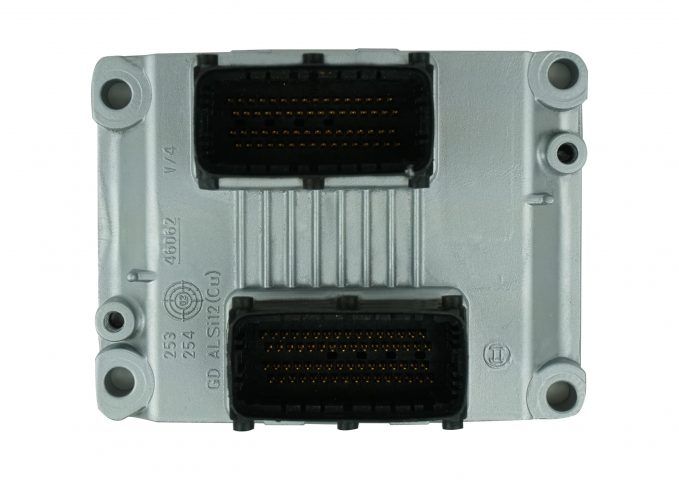
Repair vs. Replacement
If the Engine Control Module (ECM) is found to be the cause of battery drain, you have two main options: repair or replacement.
The repair route involves diagnosing and fixing the specific issue with the ECM. This could involve several steps, from resoldering the internal circuits to replacing defective components. Repairs can be cost-effective if the problem is minor, and it can be beneficial to maintain the existing ECM since it is already adapted to your vehicle’s specific performance character. However, the success of the repair method heavily depends on the nature and severity of the defect. Some internal failures may not be repairable, rendering this option ineffective.
On the other hand, replacement involves swapping out the entire ECM with a new or refurbished one. This is a straightforward process but can be more costly than repairs, especially if you require a new ECM. The advantage of this method is that it eliminates the risk of recurring issues, particularly if the existing ECM has extensive damage or multiple faults.
When deciding between repair and replacement, it’s important to consider both the initial cost and the long-term reliability. While repair may seem cost-effective initially, if the ECM has severe damage, the chances of recurrence are high. A repeated repair will lead to increased costs over time. In contrast, a more expensive replacement might offer better value in the long run by providing a more reliable, long-term fix.
Conclusion
In conclusion, the Engine Control Module (ECM) plays a critical role in the overall performance and efficiency of your vehicle. Symptoms of a faulty ECM can range from poor performance and fuel efficiency to difficulty starting and recurrent stalling. It’s important to note that a defective ECM can also lead to battery drain, primarily by failing to enter sleep mode or through electrical irregularities like internal short circuits. If an ECM-related battery drain is suspected, it’s crucial to diagnose the issue accurately using tools like a multimeter for a parasitic draw test and a diagnostic scanner to check for error codes. Depending on the ECM’s condition, you may choose to repair or replace the module. While repair can be cost-effective for minor issues, replacement might offer better long-term value for more severe damage. Early detection and intervention are crucial to prevent potential performance issues and costly repairs.
Frequently Asked Questions
- What is the role of an ECM in a vehicle?
The Engine Control Module (ECM) serves as the vehicle’s “brain,” controlling various aspects like fuel mixture, ignition timing, and variable valve timing.
- Can a faulty ECM drain the car battery?
Yes, a defective ECM can lead to battery drain, primarily by failing to enter sleep mode or due to electrical irregularities such as internal shorts.
- How to diagnose a faulty ECM?
A suspected faulty ECM can be diagnosed using tools like a multimeter for a parasitic draw test and a diagnostic scanner to check for error codes.
- What are the options if an ECM is found faulty?
You have two main options if the ECM is faulty – repair or replacement. The choice depends on the severity of the issue and the associated costs. While repair may be cost-effective for minor issues, replacement might offer better long-term value for more severe damage.



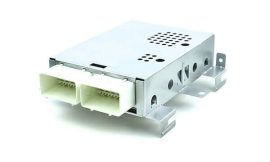

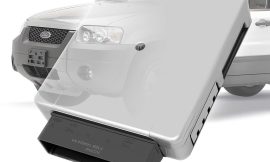
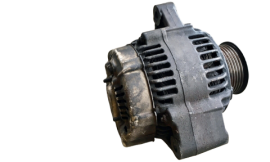
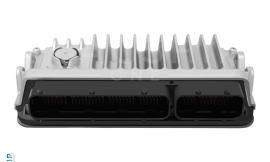
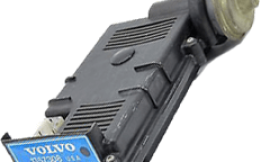




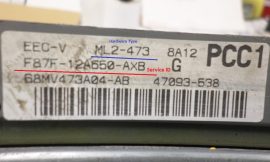

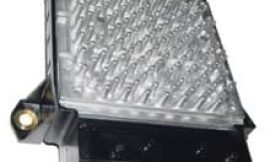


I just had a ‘so-called’ battery failure. The car wouldn’t start…the start button wouldn’t go to run and stay there…aux either…windshield wipers would not turn off…no doors would open nor the trunk lid…the battery finally drained to Zero and lost memory for the radio and a/c…After hooking the battery up to a charger for a few hours….all was just like normal again….Funny thing is the so-called battery failure was ONE day after the expiration of the 3 yr Factory warranty…makes one wonder…So is it the ECU or the Battery…? Can it be the ECU caused battery drain or even failure ? Does the cause show up in the ECU memory codes ?